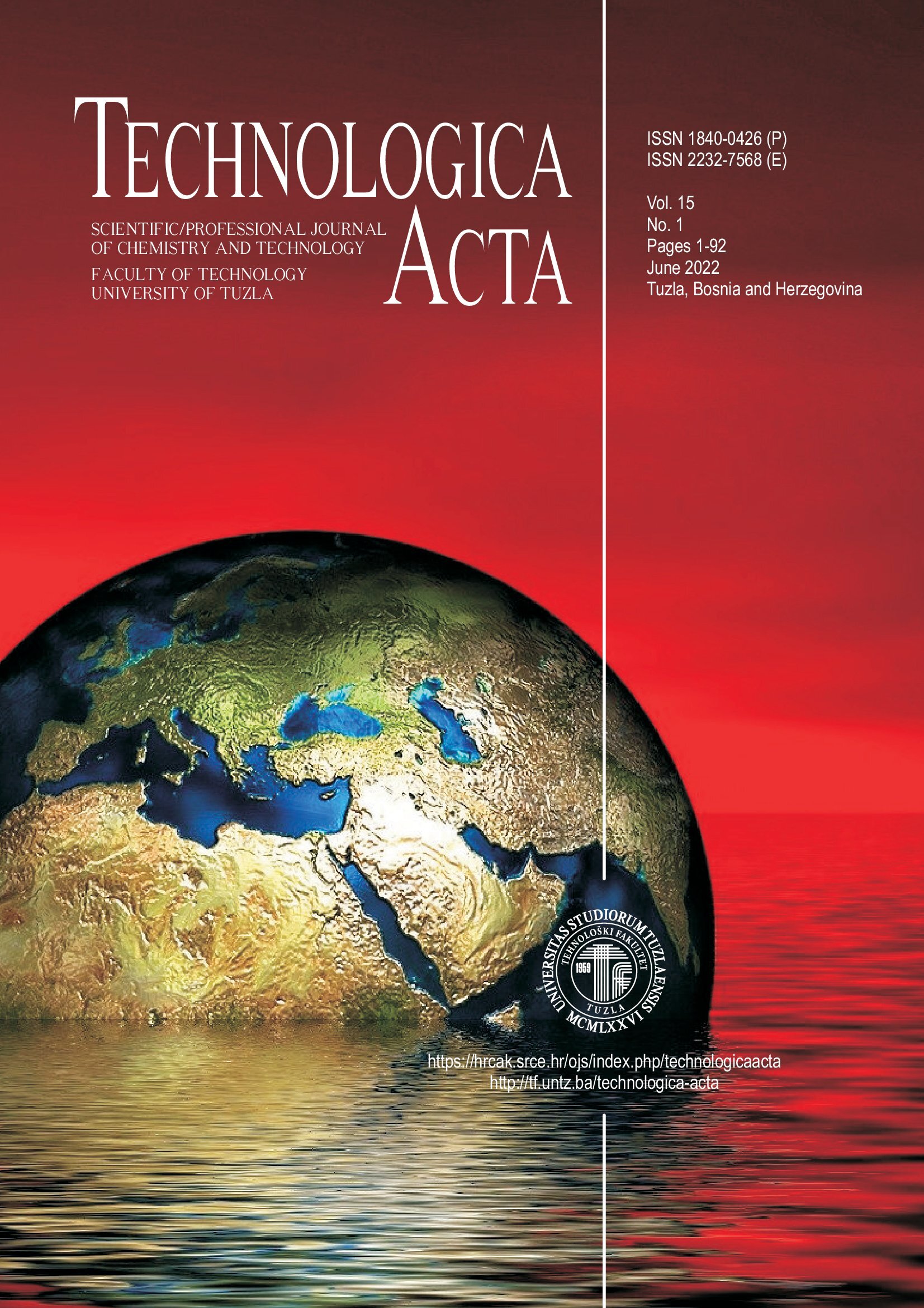Selective separation and removal of lead(ii) ion from multicomponent system through BLMs supported by fatty acids
Keywords:
liquid membrane transport, Pb(II) ion removal, dicyclohexano-18-crown-6, oleic acid, palmitic acidAbstract
Selective separation and removal of a metal species from complex matrices of other species is of critical importance in separation sciences and especially in industrial processes. The selectivity and efficiency of Pb(II) ion removal from an aqueous solution in the presence of Ni(II), Zn(II), Co(II), Cu(II), and Cd(II) ions as competing ions in a multi-component aqueous source phase through bulk liquid membrane system were investigated. The influence of the palmitic and oleic acid as supporting surfactants in the membrane phase on the removal of Pb(II) ions was also analyzed. Dicyclohexano-18-crown-6 dissolved in chloroform, proved to be a selective and efficient carrier for Pb(II) ions. In the optimized procedure, 3 hours of equilibrium time was required to achieve the maximum removal efficiency. It was found, that removal of Pb(II) ions was achieved without significant reduction in the efficiency compared to the liquid membrane transport of a single-component system. None of these cations interfered with Pb(II) removal. The presence of the oleic and palmitic acid in the membrane phase increase the content of Pb(II) removed to the receiving phase. In optimal transport conditions, more than 97% efficiencies for the removal of Pb(II) were obtained for a system supported by oleic acid. The excellent efficiency and high degree of selectivity for the Pb(II) ion removal by the proposed BLM system, reveals its potential application for the selective removal, concentration, and purification of lead ions from its different mixtures.
Downloads
Published
Issue
Section
License
Copyright (c) 2022 Jasmin Suljagić, Mersiha Suljkanović, Edita Bjelić, Azra Kovačević

This work is licensed under a Creative Commons Attribution 4.0 International License.


